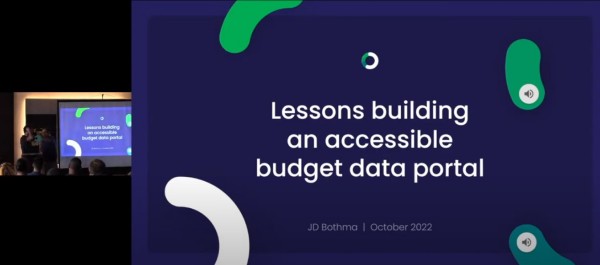A video talk given at the recent PyCon conference in Durban about an application developed for National Treasury:
We built an open data visualisation portal for National Treasury – https://vulekamali.gov.za/. Vulekamali had to make a range of structured and semi-structured data, and many other files, easily accessible to everyone in South Africa. And in ways that are meaningful both to experienced data analysts, as well as someone who never did high school accounting.
We built this using Django as a core component that manages and pulls together data from an open source Python data management system (CKAN) and an open fiscal data query platform (OpenSpending).
In this talk we share the architecture and implementation decisions that paid off, and the decisions we still regret, as well as our thoughts on how we could improve on them.
We’ll cover things like building a system to handle partial data, automating bulk file uploads, how hard it is to get people to format data correctly, and giving them helpful feedback automatically.
Source code at https://github.com/vulekamali/static-budget-portal
Watch the video at https://www.youtube.com/live/JSfg-H5XIHI
#python #django #nationaltreasury #budget

